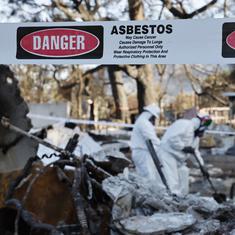United States and China agree to cut tariffs for 90 days
The two countries will enforce the changes by Wednesday, said Washington.

The United States and China on Monday agreed to suspend tariffs on each other’s goods for 90 days in a major de-escalation of trade tensions between the world’s two largest economies.
Addressing reporters after talks with Chinese officials in Geneva, US Treasury Secretary Scott Bessent said that the two countries had agreed that tariffs would come down by more than 100 percentage points to 10%, Reuters reported.
“Both countries represented their national interest very well,” Reuters quoted Bessent as saying. “We both have an interest in balanced trade, the US will continue moving towards that.”
In a statement, the White House said that the US and China will enforce the changes by Wednesday.
China will fix tariffs on US goods at 10% and suspend the additional 24% tariffs for the next 90 days, The Indian Express quoted the Chinese commerce ministry as saying. The country will also scrap additional 91% tariffs on the US, it added.
The talks in Geneva were the first face-to-face interaction between US and Chinese officials since US President Donald Trump returned to power in January.
On April 2, the US announced “reciprocal” tariffs on dozens of countries, including a 26% “discounted” levy on India. Trump had repeatedly said he intended to impose a reciprocal tax on India, among others, citing high tariffs the countries impose on foreign goods.
On April 9, the so-called reciprocal tariffs imposed by the US on several countries took effect. Hours after, however, Trump reduced the tariff rates on imports from most countries to 10% for 90 days to provide time for trade negotiations. However, Washington had increased tariffs on China to 125% at the time.
The US president had cited the “lack of respect” Beijing had shown to the global markets for further increasing tariffs on imports from China.
As tensions increased, Washington eventually placed a 145% tariff on Chinese imports, while China retaliated with a 125% tariff on the US in addition to restrictions on exports of “rare earths” to the North American country.
Bessent and Chinese Vice Premier He Lifeng held discussions over the past few days on the stalemate, according to The Indian Express. Lifeng said that the discussions were “in-depth” and “candid”.
Both countries also said that they will continue discussions on economic and trade policy, CNBC reported.
Also read: Trump’s tariff war will spare none, from advanced economies to Asia’s developing countries









